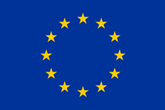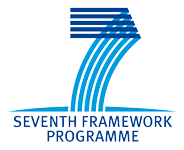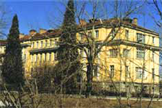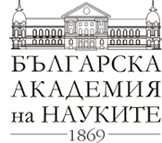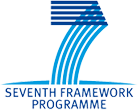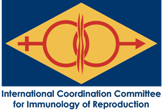ReProForce
FP7-REGPOT-2009-1
ReProForce logo
Slogun
REINFORCEMENT OF THE RESEARCH CAPACITY OF THE BULGARIAN INSTITUTE “BIOLOGY AND IMMUNOLOGY OF REPRODUCTION”
Events
- Jun 21, 2013
Information about the final meeting of ReProForce project participants /17-18 May 2013/
- May 10, 2013
Final meeting of ReProForce project
- Feb 28, 2013
Workshops of the ReProForce experts with business and scientific stakeholders in the IBIR-BAS
- Jan 30, 2013
Information for Open Doors Days in IBIR, BAS, November 29th – 30th 2012.
- Nov 14, 2012
Open Doors days – 2012
Information round-table discussion "Current research achievements in help of the assisted reproduction"
Apr 27, 2012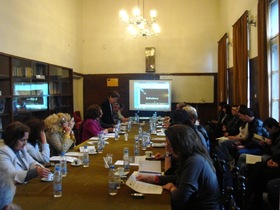
On March 31th 2012 a Round-table discussion on the problem of “Current research achievements in help of the assisted reproduction” was held in the Institute of Biology and Immunology for Reproduction (IBIR-BAS) as a part of the program of the ReProForce project financed by FP7 of the European Union.
More than 50 scientists, PhD students and specialists working on the problems of reproductive immunology and assisted reproduction technologies including the team members of the ReProForce project, outside partners, specialists from medical centers for IVF-ET were present. The participation of a non-profit non-governmental organization “Ï want a bay” should be pointed out. This is a patients' organization which is full member of the European organization of fertility (Fertility Europe) which unites the patients' organizations in Europe working in the field of reproductive health. Mrs Radina Velcheva who is the president of “I want a baby” as well as members of the Executive Board and some the regional structures in the country were present at the round-table discussion.
Representatives of the foreign partners in the ReProForce project at these events were prof. Jurgen Kleinstein (University Clinics of Reproductive Medicine and Gynecological Endocrinology, Magdeburg, Germany) and prof. Hans Donat (Director of a private gynecological hospital, Magdeburg, Germany) and prof Udo Markert (Department of Obstetrics, Fridrich Schiller University, Jena, Germany).
The round-table discussion was introduced by associate-professor Margarita Mollova, PhD, the Coordinator of the ReProForce project. M.Mollova greeted all participants and made a short overview and characteristics of the infertility in humans undelying the social significance of this problem. She presented important information about the history of the IVF-ET technology which lead to the birth of the first “test tube baby” and underlined the achievements of professor Robert Edward and the gynecologist Patrick Steptoe. M.Mollova stress out the significance of the routine application of the assisted reproductive technologies in clinical practice abroad and in our country, the continuous development and sophistication of the methods used, introduction of current research achievements and new methods for treatment of infertile patients, which is one of the aims of this round table discussion.
The scientific program of this event enlisted 4 presentations on experimental and clinical aspects of some still unresolved problem of the IVF-ET particularly and more broadly of assisted reproductive technologies.In a lecture entitled “Pregnancy at 60 years. Is that possible?”, prof. Jurgen Klienstein discussed the questions about the possibilities to achieve pregnancy at old reproductive age of 60 years, whether such pregnancy would be feasible and save, about the risks for the mother and the baby etc. Detailed overview was made of the questions about the induction, screening and obtaining of oocytes from donors or sperm and the risks from the ovarian hyperstimulation for both the donor and the recipient. During the open discussion after the presentation a case of a successful pregnancy of 63 years old woman achieved in the Medical Center, Clinical Institute for Reproductive Medicine “Sv.Elisaveta”, Pleven, Bulgaria was discussed.
Prof. Hans Donat in his lecture “Immunology of Reproduction” discussed chronologically the development of this field of biologyand more specifically talked about the problems of the immunological aspects of pregnancy, infertility and contraception; described basic methods for detection of sperm antibodies; traced out the studies on the specificities and significance of sperm antigens and their putative significance for reproduction; the significance of the antibodies against zona pellucida, integrins, immune tolerance of the mother against the fetus, methods for contraception and some other problems.
Prof. S.Kyurkchiev presented an intriguing lecture containing recent literature data “Stem cells promise bright future for the assisted reproduction”. On the basis of the interesting information about the presence of ovarian stem cells in adult woman ovary presented this lecture raised the interest of the audience. However it was underlined that the possibilities to differentiate mature oocytes from these stem cells are still limited and future research is needed.Assoc.prof D.Dimitrova presented the data of a joint group in a lecture entitled “Spermantibodies and infertility in humans”. Information was presented concerning the history of the studies on antisper antibodies in humans, comparative analysis of the methods for detection of these antibodies, their relation to infertility, rates of these antibodies in the Bulgaria population were discussed, the possibilities to overcome the effect of these antibodies in the clinic.
Interesting results were presented in the report of assoc.professor Maria Ivanova, PhD on the “Significance of the antiovarain antibodies in assisted reproduction”. It was pointed out that although this is a comparatively new problem in reproductive immunology, the results obtained in our laboratories and reported by other authors as well show the role of the antiovarian antibodies for infertility. These results contribute to developing of reasonable approaches to increase the outcome of the reproductive technologies applied for treatment of infertile patients.
The guest from the IVF-ET medical centers and the representatives of the Bulgarian Foundation “I want a baby” were shown around the newly equipped laboratories where the most modern techniques can be applied for studies on the problems of the assisted reproductive technologies and all this equipments has been purchased by the grant for the ReProForce project financed by FP7 of the European Union.
Персонализирано търсенеМрежата
